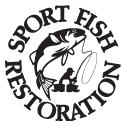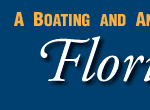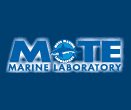CONTACT US:
Florida Fish and Wildlife
Conservation Commission
Fish and Wildlife
Research Institute
100 Eighth Avenue SE
St. Petersburg, Florida 33701
727-896-8626
|
|
|
Mote Marine Laboratory
Tropical Research Laboratory
24244 Overseas Hwy.
Summerland Key, FL 33042
305-745-2729
|
|
|

|
|
This project was funded in part by a grant awarded from Mote Marine Laboratory's Protect Our Reefs Grants Program, which is funded by proceeds from the sale of the Protect Our Reefs specialty license plate. Learn more at .
|

|
|
Additional funding for this project was obtained through the Federal Aid in Sport Fish Restoration Fund.
|
|
|

|
Unique marine environments, including seagrass meadows, mangrove-fringed islands, and extensive living coral reefs, are located adjacent to and surrounding the Keys. These environments support rich biological communities that give this area special national significance. The marine environment of the Florida Keys supports more than 6,000 species of plants, fishes, and invertebrates. It also contains the largest seagrass communities in the northern hemisphere and the nation's only coral reef tract that lies adjacent to the continent.
Additional information about these habitats can be found under Native Habitats.
|
With its wide ranging habitats, the Keys are also home to wide variety of animals. These animals can range in size from a fraction of an inch-long (many invertebrates and small fish), to weighing over 1,000 pounds and 12 feet in length (the Florida manatee). Some of the Key's animals are unusual, like the polka-dot batfish, horseshoe crab or brown pelican. Most live here year-round, while others briefly stop by (white crowned pigeon). Residents and visitors to the bay area will often stop and spend some time watching a wading bird chase fish along a shoreline or a dolphin swim by. There is always something to see in the Florida Keys.
Animals of the Keys provides information about a three of the Key's special residents: the Key deer, queen conch, and spiny lobster.
|
For more information about the habitats of the Florida Keys and many of the animals that call it home, please visit the following Web sites:
FWC's Fish and Wildlife Research Institute
Florida Keys National Marine Sanctuary
Reef Environmental Education Foundation (REEF)
|
If you are out snorkeling, diving, fishing, paddling, or boating and see anything that may be unusual or out of the ordinary (including lionfish) in the waters around the Keys , please record the location, date, and time, and contact the Marine Ecosystem Event Response and Assessment (MEERA) project. They can be reached by phone (305-395-8730), e-mail, or online.
If you have any questions, comments, or suggestions about this Web site, please e-mail us at Boating_Guides@MyFWC.com.
Would you like to receive notices of changes to this Web site and the Boating and Angling Guides to the Upper, Middle, or Lower Keys? If so, please e-mail us and include SUBSCRIBE-KEYS in the subject line.
|



















